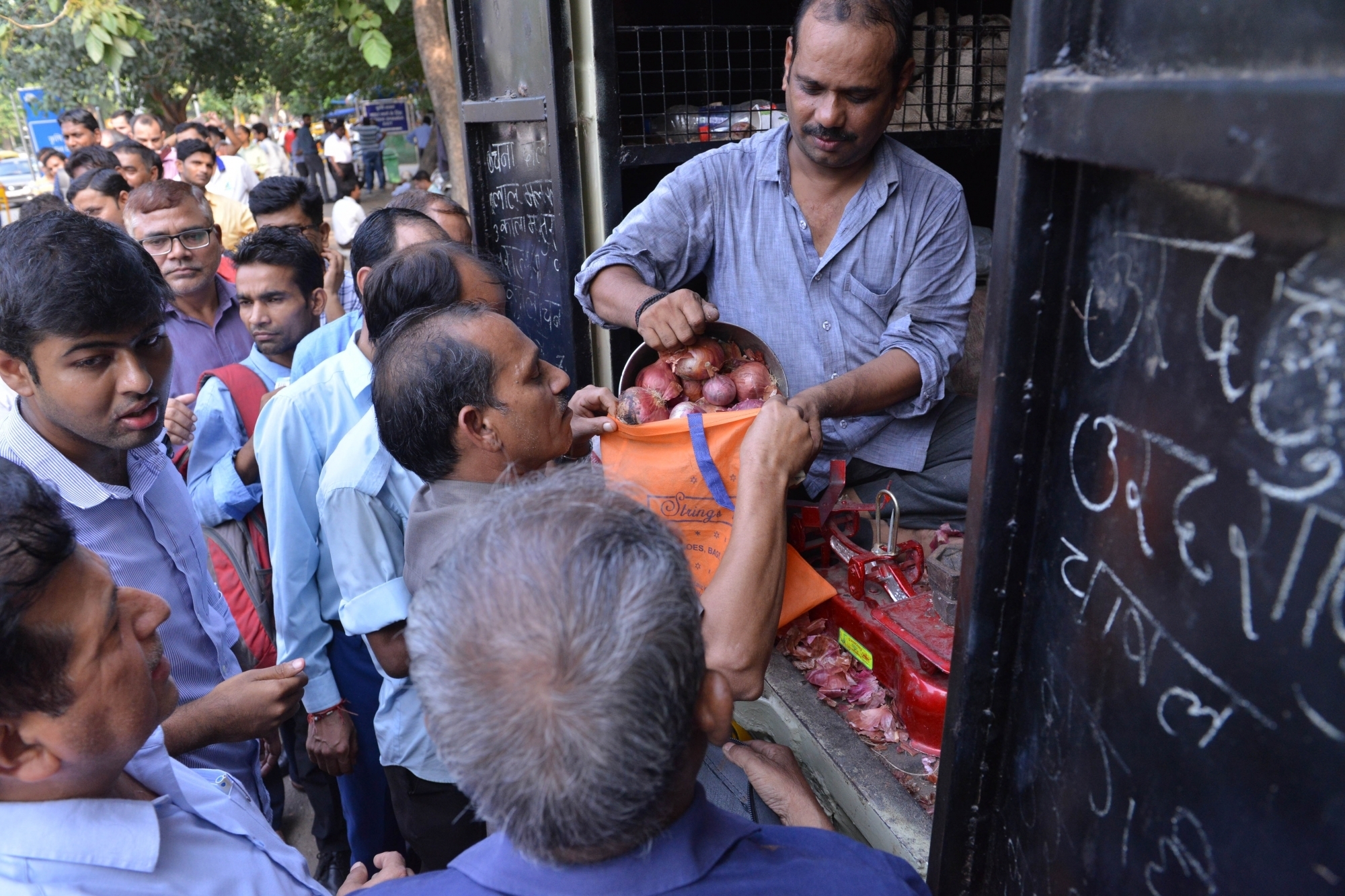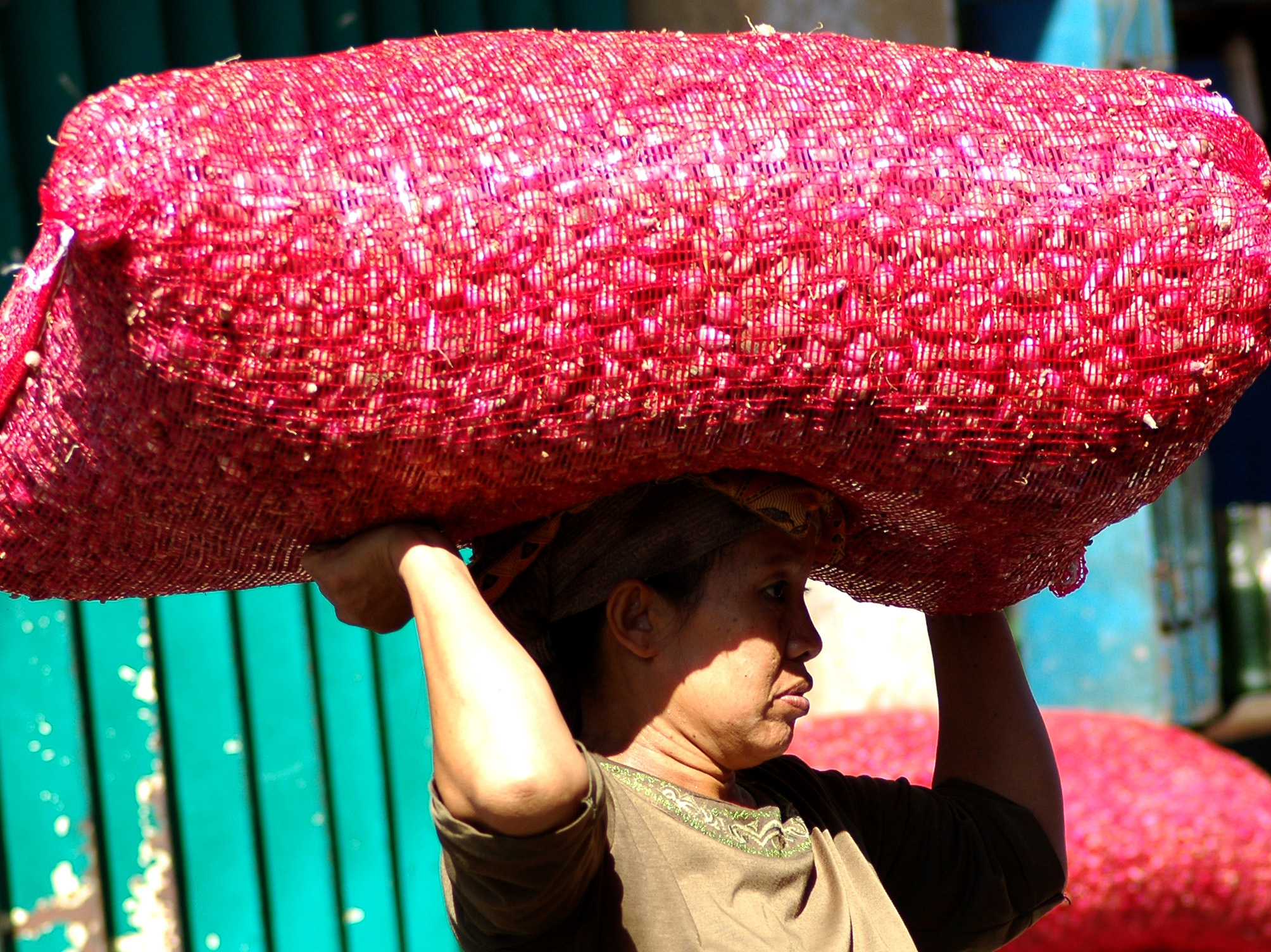Hyderabad: India is facing the worst onion crisis in four years due to a decrease in supply. Onion prices are setting new records in places like New Delhi. The price of the vegetable which is usually Rs. 10 or Rs. 15 per kilogram has now soared by five times burning deep holes in consumers’ pockets.

News about thieves stealing onions worth lakhs of rupees in Bihar and Maharashtra shows how the essential in Indian cooking became a rare commodity.
The Delhi government has already requested the Centre to supply at least five trucks of onions through National Agricultural Cooperative Marketing Federation of India Ltd (NAFED) for the citizens of the capital region.
Telugu states are working towards procuring the stock from Maharashtra and selling it at reasonable prices in Rythu Bazaars. Although officials and ministers are assuring that the condition will be normalized, it is to be noted that the onions cultivated in Kharif season will reach markets only in November.

Production has decreased in several states due to incessant rains. The central government has admitted its fault in delaying action to control prices two years back.
According to the reports, a decrease in onion produce and illegal storage by black marketeers are the main reasons for the price rise in the past. It is incomprehensible if the governments can manage to prevent a deep crisis with the current limited supply.
Maharashtra, Bihar, West Bengal, Karnataka, Gujarat, Madhya Pradesh, Rajasthan and Uttar Pradesh account for 90 per cent of onion cultivation. Two-thirds of this crop is cultivated in Nasik, Pune, Ahmednagar and Aurangabad in Maharashtra. Due to farmers’ agitation about less remunerative price last year, onion cultivation has reduced this year. Heatwaves in May and torrential rains have adversely impacted the produce.
The central government has predicted the consequences and revoked remissions on onion export and increased the minimum export price to USD 850. Amid criticism for importing 2,000 tonnes from Pakistan among other countries like Egypt, China and Afghanistan, the Centre decided to magically erase Pakistan’s name from import records. Experts claim that imports will be minimal in the first quarter of October. Meanwhile, the government is claiming that it will take necessary measures to curb illegal storage in black markets.

Narendra Singh Tomar, Minister of Agriculture & Farmers Welfare and Ram Vilas Paswan, Cabinet Minister of Consumer Affairs, Food and Public Distribution are asserting that they will improve the supply through NAFED. But, temporary reliefs after the situation has worsened will not provide any long-term benefits.
Onion prices are sky high in places like Lasalgaon, Asia’s largest wholesale market for onions. Farmers in Kurnool protested in market yard regarding low remunerative price. It is clear that middlemen and traders are making profits amid the furore over increased prices. Producers are impacted when there is a fall in prices due to excess supply while consumers are affected when the condition is reversed.
Onions account for less than 1 per cent of national agricultural production. According to surveys, each citizen consumes less than 800 grams of onion per day.
Soaring prices and resultant crisis have become a custom between July and September every year. Although cultivation is accelerated between May-July, August-September and October-November to increase reserves, only Rabi season is favourable for storage.
A working committee dedicated to the study of price fluctuations, import regulations and citizen needs must have been established by now. In a country with 14 crore hectares of cultivable land, 100 research institutions, esteemed agricultural universities and 650 farm science centres, it is regrettable that we must import onions, millets and vegetable oils.
Guidelines to create a win-win situation for consumers and producers by formulating district-level plans, increasing the quality of transportation and storage can prevent onion crisis in the future.
Also Read: Wholesale prices fall in Asia's biggest onion market



